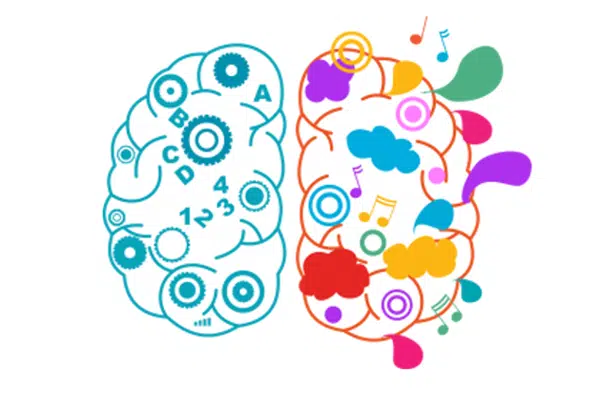Early development programs are popular among families wishing to give their children a head start in an increasingly competitive world. Long-term studies show incredible benefits for children who formally learn from a young age. While there’s much debate about the best time and way to learn, we at Shichida understand learning as lifelong and non-stop.
So why is it important to start early? What results does it provide, and why does it produce such benefits?

Early Development: The “Genius Period”
People learn from the second they’re born, and never stop. But brain development is significantly quicker and more flexible in infancy and early childhood. From ages 0-3 in particular, the brain develops very rapidly. The “neural circuit” is developed by age 3 and 90% of the brain is formed by age 5.
The brain acts like roads on a grid. Some roads are used more frequently, and the grid changes based on the habits of “drivers”. “Main roads” are stable and only see minor “repairs”. Associations (roads) are based on exposure, repetition, variety, timing, novelty and emotional attachment. These connections comprise the neural circuit. The more quality stimuli presented, the more complex and enriched the circuit becomes. This circuit is constantly changing (think road works), but the fundamental basis created in infancy and early childhood becomes the root of thinking for the rest of our lives.
The first three years of a child’s life are called the “Genius Period”. During these crucial years we have a limited opportunity to help children achieve their full potential based on their unique talents. In accordance, the “Law of Diminishing Ability” states that if we don’t take advantage of prime time for learning, we lose ability to achieve our full potential.
Finally, in infancy, the brain functions in “Alpha Wave” mode. The brain is at its most relaxed and absorbent in alpha mode, helping children to retain information. Alpha wave function can be induced through certain music, including classical music, which is why it’s common for parents to play classical music to their children.

Stimulate the Right Brain
The brain is divided into two halves, the left and right hemispheres. The left hemisphere is what we generally imagine when thinking about the brain—it’s linear, linguistic, logical, and analytical. The left brain dominates adult thinking.
The right-brain relies on images, and controls such aspects as photographic memory, rapid processing, creativity, innovation and intuition. The right brain dominates thinking until age 3, which is why it’s necessary to encourage right-brain learning at a very young age.
Imagine the benefits, for example, of building photographic memory at a young age. This would make retaining and processing of information much easier in the long run.

Long-Term Benefits
Starting the learning journey early saves a great deal of work over time. Although teaching children can be frustrating, imagine, for example, learning a new language in adulthood. When a child learns language it becomes innate, whereas adults have to spend much more time learning, and they rarely reach fluency. The purpose of early learning is to give children the tools to make learning and life as easy as possible.
Multiple studies show that early education gives kids a lifelong advantage compared to peers who start learning in school. Some benefits include:
- Increased attention span
- Problem-solving skills, confidence, self-reliance
- Emotional intelligence & social skills
- Enthusiasm for learning
- Positive bond with parent
- Better academic & career outcomes
- Better health & socioeconomic status
- Return on investment: Some studies estimate that for every dollar spent on a quality early learning program, there is a $4-$11 return, while another stated that children who were educated at a young age earned $2000 more per month than their peers.

Not All Programs are Created Equal
While it’s wise to invest in an early learning program, not all methods are equal. Some features are shown to have stronger influence, including:
- Small classes
- Age-appropriate activities
- Variety of activities: This keeps children engaged. Key activities for strong development include talking, singing and reading.
- Doesn’t take too long: Children lose focus and interest when a class is too long, so it’s important to time it just right!
Supporting early learning gives children the tools they need to succeed in life and should be viewed, therefore, as an investment for their future. It’s never too early to start learning but it’s important to present age-appropriate and quality stimuli to ensure the best results.



